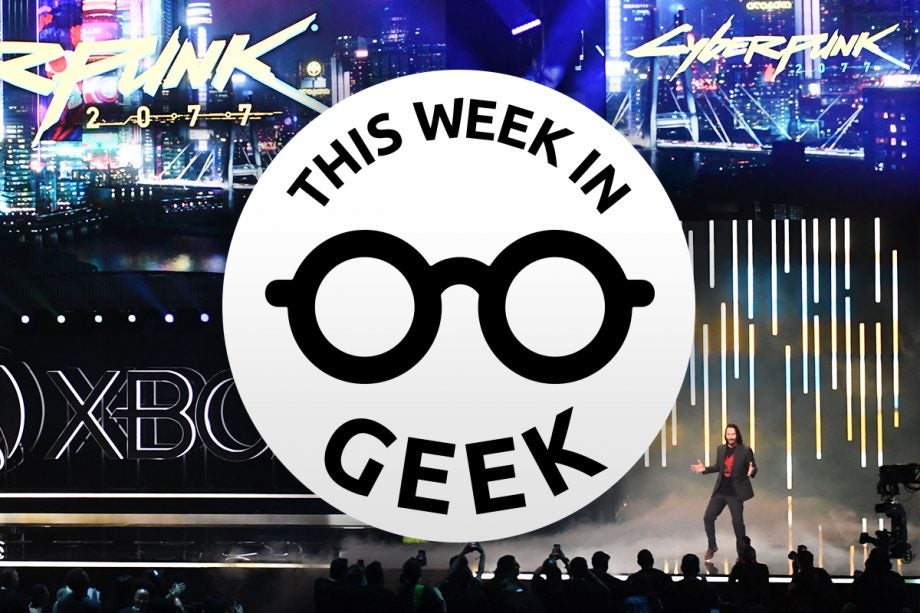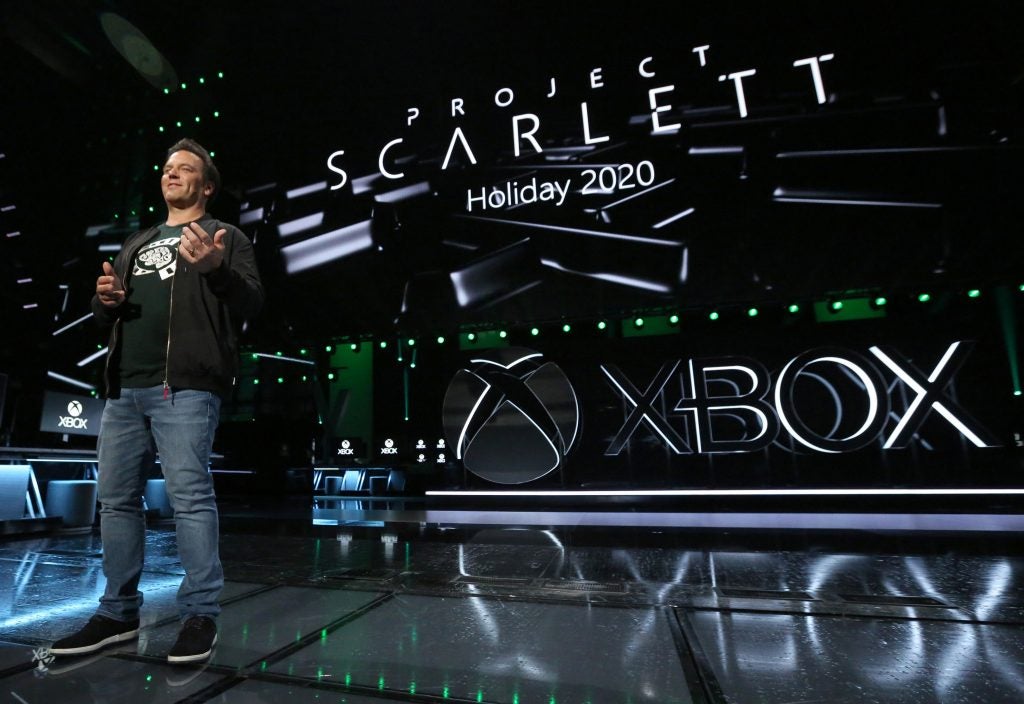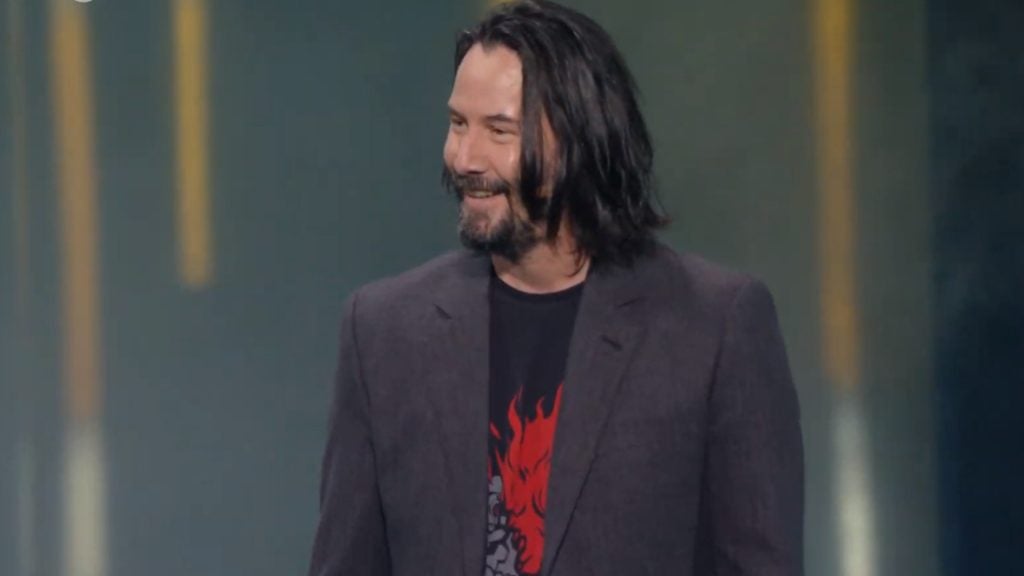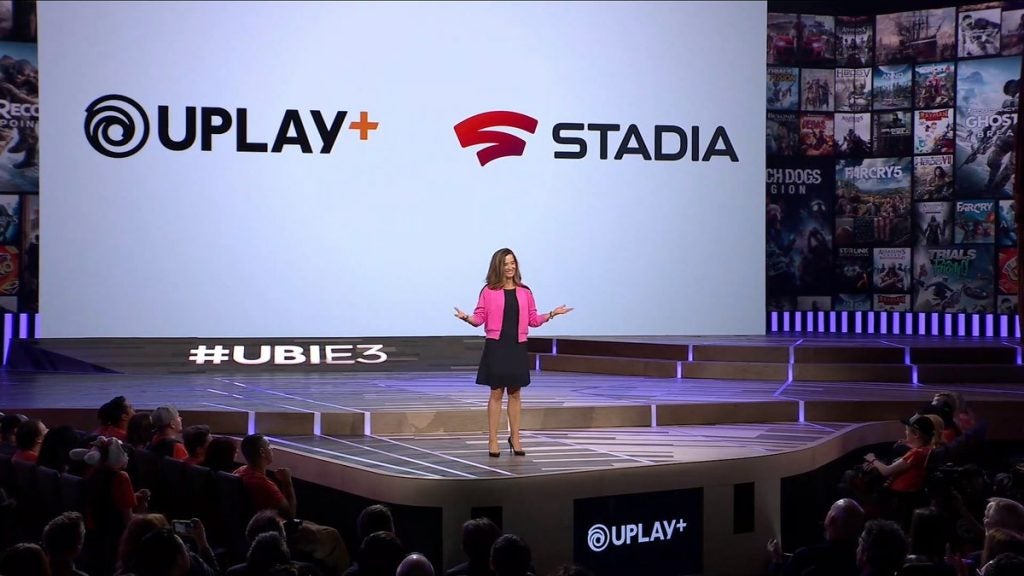A new Xbox, Keanu winning E3 and why the show has to end: The Week in Geek

E3 has taken place this week, meaning the whole of Team Trusted is knee deep in video game news.
So deep in fact, that a clever introduction is beyond me, as I’ve spent most of the week watching video game trailers and trying to work out how I’m going to spend the chunk of 2020 where both Watch Dogs: Legion and Cyberpunk 2077 land within a short distance of each other.
With that in mind, let’s get on with the biggest news from the show for This Week in Geek.

The Scarlett Letter
By announcing their Xbox 2 (codename: Project Scarlett) during their E3 keynote, Microsoft has officially jumped in first for the next, and possibly last, console generation.
But trying to suss out more at this early stage is difficult. The problem with going first is, outside of a Wired exclusive that revealed the console is being worked on, no one is entirely sure what Sony’s PS5 has to offer. So, Microsoft, not wanting to give too much away has merely claimed that their forthcoming X-console will be “four times more powerful than the Xbox One X.”
The Xbox One X is the most powerful console on the market right now, with a single-threaded 8-core “Jaguar” CPU clocked at 2.3GHz. This is not insubstantial. However, it’s been a long time since the Xbox One and One X’s processors were first shown off in 2012, and CPU technology has come a long way. We’ll likely see a huge increase in performance as these cores become multithreaded.
Then bring in the “next-gen SSD” which is claimed to have a 40x increase in read speeds, and you can see just how far things have come in the years since the last generation. This 40x increase sounds hyperbolic, but current generation consoles use 5400 RPM mechanical hard drivers with read speeds of 80MBps or so. High-end non-volatile memory express (NVME) drives, the bleeding edge of storage tech that connects directly to a motherboard, can offer some 3200MBps, a blistering increase in speeds.
Perhaps the biggest news for the average gamer is that all peripherals and games designed for the Xbox One X should be supported by the new console. In the video above, Xbox chief Phil Spencer plant’s the flag for the brand: “I don’t lose my last generation as I move into the next generation; the people I play with and the games that I want to play. That experience should be continuous and always growing.”
We’ll see more in the future, but now the ball is in Sony’s court to unveil some of the magic underneath the hood of their new PlayStation, something we’ll probably find out more about towards the tail end of the year
One of the real winners of this fight will be AMD, with both the upcoming PlayStation console and Project Scarlett being based around their Navi and Zen 2 architecture.

A game with fame
Keanu Reeves strode out on to the stage to talk about why the forthcoming Cyberpunk 2077 is breathtaking (no, you’re breathtaking).
Keanu Reeves plays Johnny Silverhand, a rockstar turned freedom fighter. He’s a central character in the Cyberpunk tabletop roleplaying universe, and the rumour is that he will be inhabiting your character’s noggin, through some sort of cyber…modification? It makes sense, in the Cyberpunk trailer where he appears, Silverhand is flickering in and out of existence.
He’s not the first celebrity to appear on stage at E3. Robin Williams got rolled out to demo the game Spore way back when, Drake showed up to introduce Fifa ’14. Last year, Joseph Gordon Levitt appeared on stage to talk about the forthcoming Beyond Good and Evil 2, a game that was mysteriously missing from this year’s Ubisoft conference.
However, it’s one of the first times that a celebrity has come out on stage to generate hype for a game that they’re starring in, front and center.
He’s joined by Jon Bernthal, best known for his roles as growly shoot-man Frank ‘The Punisher’ Castle or the Walking Dead’s Shane Walsh. Here, he’s on stage with his adorable pitbull Bam Bam to talk about how he’s playing the antagonist role of Cole D. Walker in Ghost Recon: Breakpoint, a growly shoot-man that will oppose players in the game.
These celebrity appearances mark a realisation, at last, that E3 takes place in the place many celebrities call home, so a five minute appearance on stage is the equivalent of me bashing out a 300 word news-story while I nip out to get a magnum from the corner shop.
However, it’s also the realisation that games have ended up in the same place as prestige TV shows: a place to tell stories in a unique way that perhaps movies can’t offer. The Witcher 3, the last game from Cyberpunk 2077 devs, can take anywhere from 70-100 hours to complete even if you’re charging through it. This, combined with the interactivity, provide a tantalising playground for telling stories that matter, for an audience of gamers that are slowly being conditioned to demand smart writing and interesting character work.
Put like this, the increasing amount of famous actors willing to get digitised to appear in forthcoming game projects is a trend that’s likely to continue, and we are Team Trusted couldn’t be happier.

The end of days
E3 is unsustainable.
I’ll go one better. E3 is unsustainable and everyone knows it. That’s why publishers are fleeing the event in droves, eagerly setting up their own events around Los Angeles, or fleeing to events like Gamescom to show their games.
There’s a couple of reasons for this. Cost is a huge factor: setting up a booth at E3 is expensive and, increasingly, spent without reasonable benefit. Companies with enough budget to have a wall full of roses at their booth or — my 2018 favourite — a living diorama of a zombie infested Racoon City, often are big enough names that they can bring in a crowd on their own.
Secondly, developers just seem a lot less keen to show off early gameplay for their titles, and who can blame them? Early videos are torn apart by YouTube personalities and angry commenters who are keen to deride early footage, and when the game does finally appear, legions of internet “fans” will declare it a graphical downgrade. In 2018, Spider-Man came under attack by fans because a puddle looked different from pre-release footage. The game hadn’t even been released yet.
E3 was originally born out of a desire to get journalists and business execs to a single place to discuss the business of games. In a world before YouTube and video conferencing, it was a handy place for deals to be done, games to be shown off, and for journalists to schlep back to their hotel rooms to get words filed for their print publication.
That’s not really the real purpose anymore, and it serves largely as a megaphone that has to let regular punters in to try and recoup the costs of filling out the Los Angeles Convention Center.
The problem is simple: now, anyone with an internet connection can transmit news to fans around the world, pretty much whenever they want. There’s so much content being pumped out around the world that the real challenge is convincing people to actually watch it.
Companies like Nintendo have shown that they can get the same amount of buzz by dropping a video, and they do this several times a year to huge acclaim.
This year, we saw satellite events and live video feeds from Google Stadia, Electronic Arts, Bungie, Upload VR, Limited Run Games, AMD, Nintendo, Kinda Funny Games and, starting tomorrow, Epic Games will be taking over The Forum in Inglewood for several Fortnite activities. Next year, we’ll probably see more.
It won’t happen overnight, but E3’s continued existence in this form is almost hubristic in an industry that no longer has a need for one huge mega-event. The industry also finds that event, paradoxically, better served at Gamescom, which is more aimed at letting players get their hands on the latest and greatest games, and less about feeding the hype-beast.
We’ll always need conferences for companies to talk about their latest and greatest games, but as we see big outfits like Sony stepping away from E3, it feels more and more like we’re likely to see these events decentralise.


